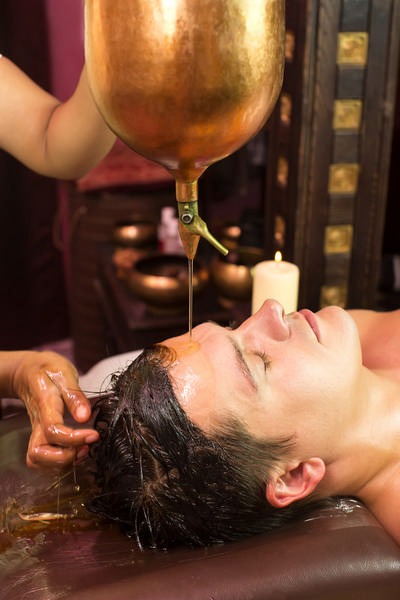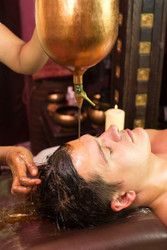Alzheimers: Do Our Brains Need Oil?
Apr 16th 2015
Posted by Dr. Christoph Streicher and Stephanie C.
by Christoph Streicher, Ph.D. and Stephanie C.

Unfortunately Alzheimer’s disease is becoming increasingly common. Worldwide more than 35 million people are suffering from this illness 1. It is chronic degenerative disease which affects the neurons in the brain.
A study by Japanese researchers 2 on 28 elderly people with dementia - 17 of whom had Alzheimer's disease - showed that aromatherapy was an efficacious therapy for dementia and that it may improve cognitive function, especially in Alzheimer’s patients.
The subjects were tested four times: 28 days before they commenced using the aromatherapy, then again just before they started treatment and again after the 28 days of aromatherapy, and again 28 days after that finished. They were exposed to a diffusion of Rosemary Essential Oil and Lemon Essential Oil in the morning, and Lavender Essential Oil and Orange Essential Oil in the evening. They were evaluated using the Japanese version of the Gottfries, Brane, Steen scale (GBSS-J), Functional Assessment Staging of Alzheimer's disease (FAST), a revised version of Hasegawa's Dementia Scale (HDS-R), and the Touch Panel-type Dementia Assessment Scale (TDAS).
After the aromatherapy treatment, all of the patients showed significant improvement in personal orientation related to cognitive function on both the GBSS-J and TDAS. The patients with Alzheimers showed significant improvement in total TDAS scores. Testing didn’t indicate any side-effects associated with the use of the essential oils. Other results from Zarit's score showed no significant changes, suggesting that the results could not be attributed to the effects of caregivers.
Many have also found that diffusing Basil Essential Oil in the mornings, and Bergamot Essential Oil and Ylang Ylang Essential Oil evenings can create strong beneficial effects as well. Using these essential oils in the evening could also be very helpful with sundowner syndrome (the confusion, agitation or cognitive impairment that generally affects people with dementia around sunset).
Ayurvedic therapies where herbalized oils are applied to the head have been used for centuries for neurodegenerative diseases like dementia. The most commonly known is Shirodhara (where oil is gently dripped on the forehead), but there are other treatments such as Shirobasti (oil is poured and retained on the head using a special cap), ShiroAbhyanga (oil is smeared on the head followed by a gentle massage), and ShiroSeka (a continuous stream of oil is poured over the head).
Preliminary research studies 3 seem to be indicating the benefits of such treatments especially in terms of the reducing the anxiety and agitation associated with these illnesses. One study in particular showed that when Lavender Essential Oil was added to the medicated sesame oil for the Shirodhara, it significantly reduced anxiety and created a larger increase in foot skin temperature than Shirodhara with plain sesame oil4.
The positive results of this study are encouraging and it indicates that aromatherapy could and should form part of the treatment regimen for Alzheimer's disease. Hopefully further long-term research will also show they could be help prevent development of the disease.
Sources:
1 The New england Journal Of Medicine - January 28, 2010 329 Review Article: Mechanisms of Disease Alzheimer’s Disease by Henry W. Querfurth, M.D., Ph.D., and Frank M. LaFerla, Ph.D. http://www.uc.pt/en/fmuc/phdhs/Courses/neurodegeneration/Querfurth___La_Ferla_N.Engl.J.Med-10__AD_review.pdf
2 Psychogeriatrics Dec 2009: Effect of aromatherapy on patients with Alzheimer's disease by Jimbo D1, Kimura Y, Taniguchi M, Inoue M, Urakami K. http://www.ncbi.nlm.nih.gov/pubmed/20377818
3 http://www.ncbi.nlm.nih.gov/pmc/articles/PMC3506936/
4 http://www.ncbi.nlm.nih.gov/pubmed/18990044
Disclaimer: The statements made in this blog have not been evaluated by the U.S. Food and Drug Administration (FDA). They are not intended to diagnose, cure or prevent any disease. If a condition persists, please contact your physician or healthcare provider. The information provided is not a substitute for a face-to-face consultation with a healthcare provider, and should not be construed as medical advice.
Original Published: 2015-04-16 / Last Modified: 2021-10-11

